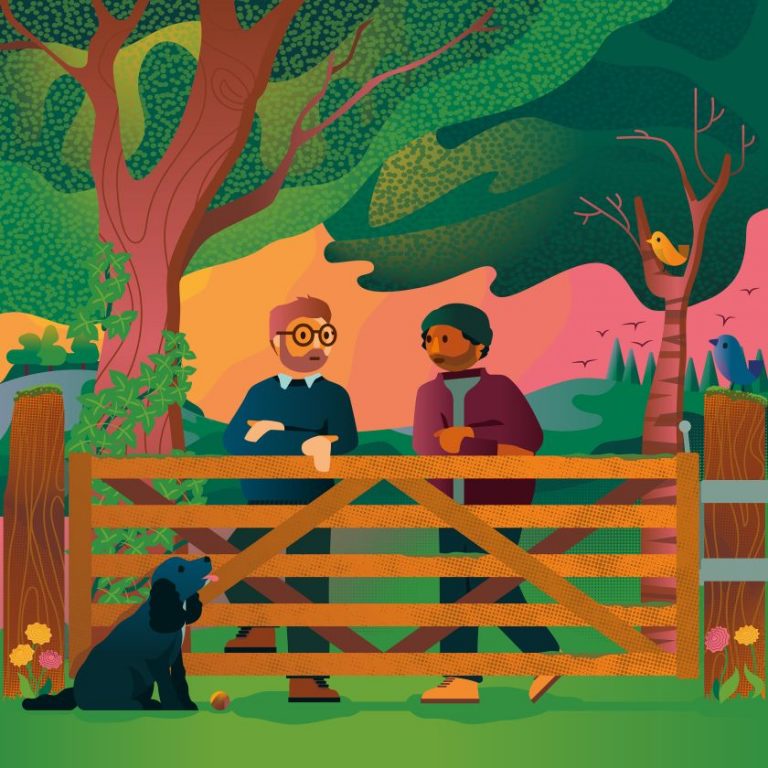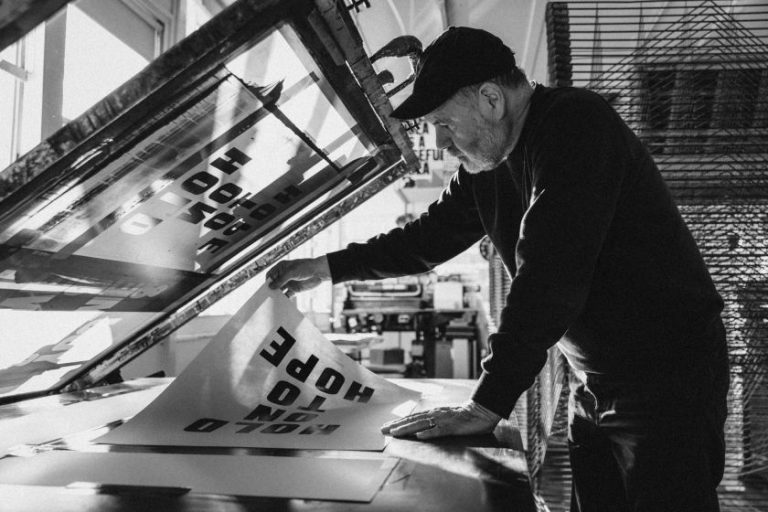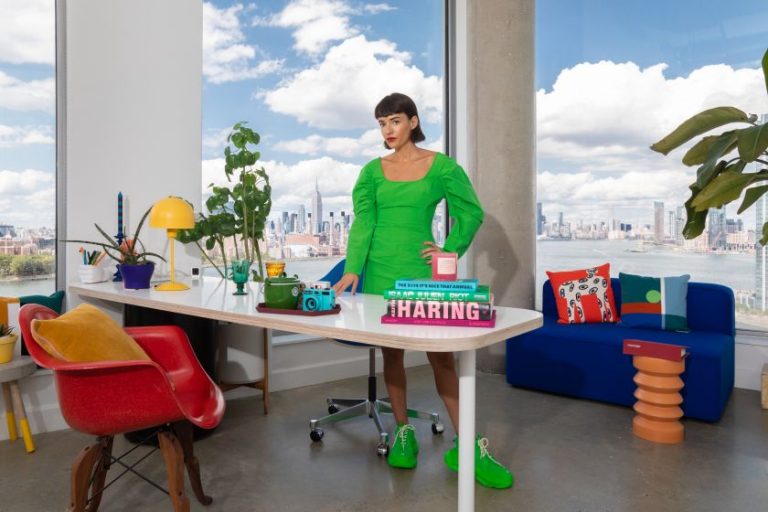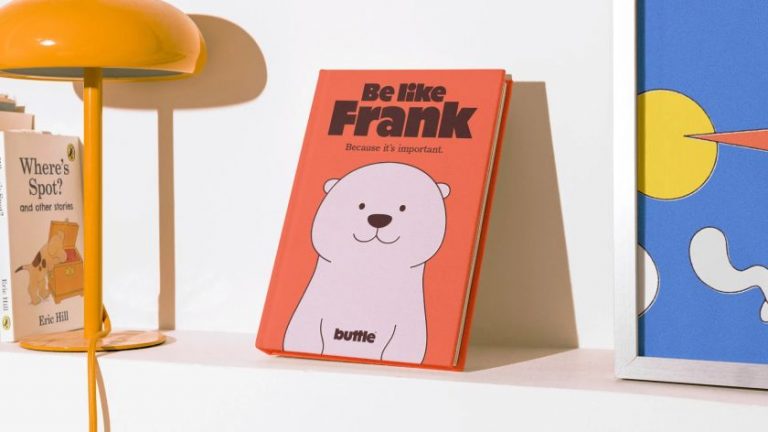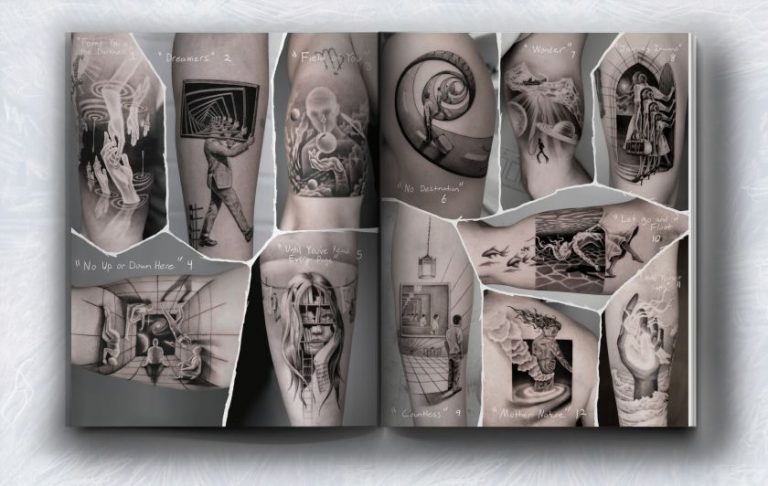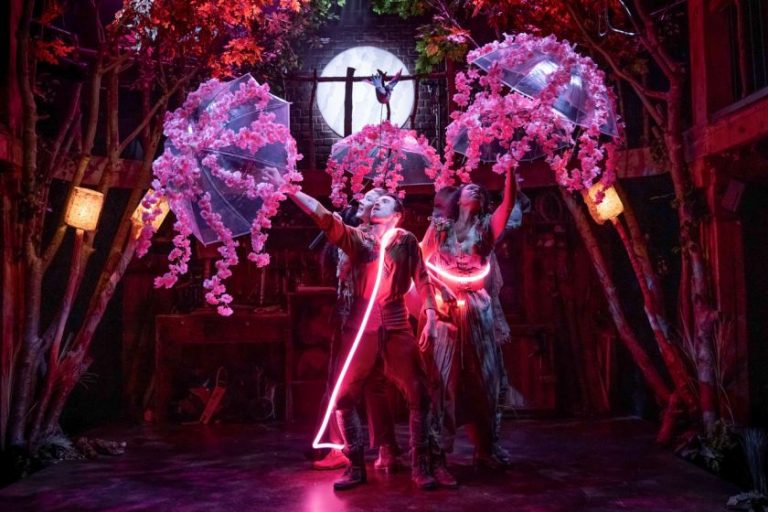Identity for GlouGlou by &Something
The founder of Shrewsbury design studio &Something, Tony Clarkson, opens up about his recent struggles with motivation and offers his advice to others in the same situation.
When you enter the creative industry, it can be really tough to find your place, fit in, and earn a consistent living. Eventually, though, you find your stride and enter a dream period, where you’re working on projects that matter to you, improving your work day-on-day, and driving your career ever forward.
At this point, you think you’ve cracked it. But then, a couple of decades into your career, things can start to go downhill fast.
It happens to the best of us. We lose our spark, feel stuck, become risk-averse and lose our passion. It’s a bit like a long-term relationship that’s run into the sand. However, rather than a relationship with a person, it’s our relationship with creativity itself that’s in trouble.
So what can we do? To get some ideas about how to get over the hump, we chatted to Tony Clarkson, founder and director of design studio &Something because it’s something he himself has recently experienced.
“Finding and keeping motivation has been the most difficult thing to deal with this year,” he says. “Plans hadn’t been going to plan; things were getting confusing and frustrating, and I wasn’t sure what direction I wanted to take or how to take it. I’ve felt like a rabbit in headlights for a long time; it’s been exhausting.”
Read on as Tony reveals, openly and honestly, what’s been bringing him down, how he’s turned things around, and his tips for dragging yourself out of a slump.
“The spark went out.”
It’s easy, of course, to lose your spark at any stage of your career. But when you reach mid-life, it can often be especially challenging. And that’s certainly been the case for Tony.
That said, he’s not sure how much that’s down to his personal age and how much is due to the age we’re living in.
“Yes, the spark’s been out a few times in the last few years,” he says. “But I don’t know if it’s down to how long I’ve been here. I think the latest chain of events globally, making the ordinary things so much harder to deal with, is more to blame. As we get older, we get more responsibilities. Suddenly, it seems, those responsibilities have become more expensive. And that puts extra strain on things work-wise. Faster turnaround, longer hours, and so on – all take their toll.
“I’m up and down about things daily, and frustration is the main cause,” he continues. “I never used to say so, but lately, I’ve been talking about things with a few friends to get some different points of view. It’s helped a bit. My best grounding comes from a list on the wall in the studio. The first item, ‘Nobody has heard of us’, clears the air and gives me a focal point. Fix that one thing, and it’ll be fine.”
Identity for GlouGlou by &Something
Identity for GlouGlou by &Something
Good to talk
So, what’s been helping Tony regain his energy and passion? His immediate answer may surprise you. “Talking,” he replies. “Which feels odd for me to say because I don’t like talking. Which in itself might explain some of the situations I just mentioned.”
Tony sets the scene. “Using the end of a post-grad course in 2021 as a new starting point, I decided to make a change in my life,” he explains. “I didn’t want to slip back into just doing anything for anyone. But I couldn’t work out which direction to go in because I didn’t really know what I wanted to focus on. I’d just done a load of work I’d enjoyed, and I wanted it to carry on that way, but when anyone asked what I did, I still didn’t know what to say. Graphic design, brochures and logos and stuff… was all I came up with.”
In short, Tony had to dig deep to figure things out and narrow it all down to what he actually wanted to be doing, what he should be aiming for, and practical ways to help realise it. And talking to others proved a big help.
“I’m in touch with a couple of people who run big-name studios whose feedback and opinions I trust, and talking things through with them has been invaluable,” he explains. “Being pushed enough to describe the problem and talking through possible solutions meant I had to fully think things through. Not just do a bit and tell myself, ‘That’ll do for today’.
“So now I’ve got a goal to aim for and a plan to help get there, and that’s where the new energy comes from. It’ll be hard work, but it’s clear and simple. That’s the bit I hadn’t figured out. I have to get it to work. Otherwise, I’ll just keep plodding.”
Getting out there
His advice for others in a similar slump is straightforward. “Have a plan, keep it reasonably flexible, but give yourself something to work towards,” he says. “Speak to people, get to know as many as possible. The best work comes from recommendations, and the best advice comes from people who’ve done it themselves. If there are people around you whose opinion you trust, then advice and feedback will be valid and worth taking on board.”
Commonwood wine labels by &Something
Iron and Rose by &Something
And there’s something else. “Get immersed in design,” Tony recommends… and offers an example of how that worked for him.
“On a visit to Manchester for the Design Festival in 2019, I was invited to join a group of friends for a beer after the event,” he recalls. “There were people who all worked at different agencies around the city, all talking about their different goings-on: the places they worked, work they were doing, places looking to hire, potential clients, all that important stuff. That’s missing where I live now [in Shrewsbury, Shropshire]. So I’ve a plan to try and set up a way to change that.”
Of course, design events aren’t the only way to stay connected to the industry. He advises you to also: “Go to exhibitions, events and galleries as much as possible. See things. See as much as you can. Stay creative, even if it’s something like a life drawing class.
“Use social media to link up and get to know people from your favourite studios if you can, follow them and look at their work. Sometimes, when you’re not doing well, it frustrates you and makes you feel doubtful – like you’re missing something. But most of the time, it gets you thinking about what’s possible. Read. Tell people what you do. Ask people what they do. You never know; there might be a connection between the two.”
While technology can pose problems, notes Tony, we should also take advantage of it where it helps. “For example, we used to have to sift through pages and pages of directories and catalogues to track down people we’d like to get in touch with professionally, then write to them or phone, if you were brave enough. Now, we can quickly search on LinkedIn and find almost anyone we want to. Then connect or even DM them… if you’re brave enough.”
Don’t compare
And here’s one final way to avoid losing your mojo. “Comparing ourselves to others, professionally and day-to-day, can drag us down and sap our motivation,” Tony notes. “And yet, we can’t help doing it.
“We see other people’s best work, best holidays, and best times all the time online and wonder why we can’t manage that, too. We think we’ve got to be more, or we must be doing something wrong or not good enough at what we do. Otherwise, we’d also have the new gear, the holidays, the bigger house.”
Cycling Revolutions by &Something
Photobook: Luthier. Beeches Lane by &Something
So what’s the solution? “It helps to remember that people show the bits they want you to see,” says Tony. In other words, you’re not seeing all the failures, the bad drafts and the projects that never came to completion. But that stuff happens to everyone, not just you. Once you realise that, you’ll stop comparing apples to oranges and be able to focus fully on your own work and not other people’s.
It doesn’t happen overnight
If you’re experiencing a slump, following Tony’s advice should help you turn things around. But that doesn’t mean it’ll happen overnight. And Tony confirms that this applies to his own life and career just as much as anyone else’s; it’s very much a work in progress.
“Getting to the next level after all this time has to be my priority before I drive myself up the wall,” he explains. “I need to get into the kind of work I want to do, so I’ll be looking for ways to find the kind that excites me as above.
“I know it will be hard work, especially being based here. People say it doesn’t matter where you are, but a recent response was ‘quite how [a designer in Shrewsbury] would ‘fit’ with [their team]’. Now, that could be meant from a practical point of view, I’m not so sure, but experience gives me a thick skin most of the time.”

